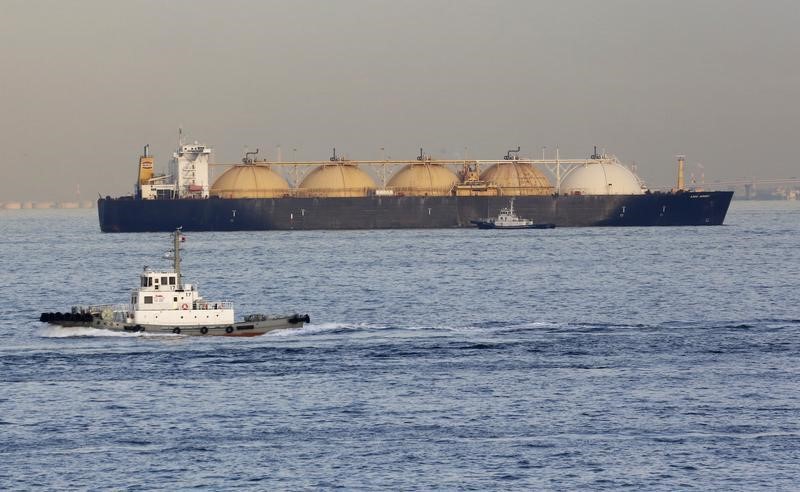(Adds comment, detail)
By Osamu Tsukimori and Mark Tay
TOKYO, June 28 (Reuters) - Japan's anti-monopoly regulator ruled on Wednesday that all new contracts for liquefied natural gas (LNG) should not contain restrictions on reselling cargoes of the fuel, adding momentum to a push to liberalise the LNG market.
The decision, which was in line with growing market practice, is likely to lead to more trading of LNG cargoes by buyers in Japan, the world's biggest importer of the fuel, and could see challenges to similar restrictions elsewhere in Asia.
Asian LNG buyers have long complained that having destination clauses in LNG contracts unfairly restricts trading of the fuel at times when it would make more economic sense for buyers to on-sell supplies to other markets.
The ruling comes as new LNG projects have boosted supply and many producers have already relented on the issue, offering contracts without resale or destination restrictions.
"It is not unexpected ... this is very much consistent with Japan's efforts to liberalise the gas market," said Neil Beveridge, oil and gas analyst at AB Bernstein in Hong Kong.
"By removing the destination clauses, the idea is to increase liquidity in the market which is going to be a key step towards market liberalisation and development of a pricing hub," he said.
A spokesman for Jera, a joint venture between Tokyo Electric 9501.T and Chubu Electric 9502.T that is the world's single biggest LNG buyer, said that easing or scrapping destination clauses was essential to boosting liquidity of LNG and developing a healthy LNG market in Asia.
Japan is in a strong position to renegotiate supply terms given it spent about $30 billion to import nearly 85 million tonnes of LNG in the year to end-March, according to official trade data, about a third of globally traded LNG. is obviously a reflection of a market where buyers have a lot of power over sellers at the moment given the oversupply that we are seeing," Beveridge said.
The move is a reprise of the upheaval in Europe in the early 2000s when the European Union found certain gas market practices anti-competitive.
Japan's Fair Trade Commission late last year ordered the country's LNG buyers to provide details on contract requirements that prevent them from reselling the liquefied fuel to third parties. had been talking about this for quite a while. A lot of the sellers already loosened their restrictions. It will probably impact the Qatari contracts especially in this oversupply climate," a Singapore-based LNG trader said.
Producers in Qatar have several long-term LNG contracts up for negotiation with Japan between now and 2021, while producers in Malaysia will also be affected. Fair Trade Commission said it would keep monitoring the LNG market and would take "strict actions" against any violations of the country's Antimonopoly Act.
